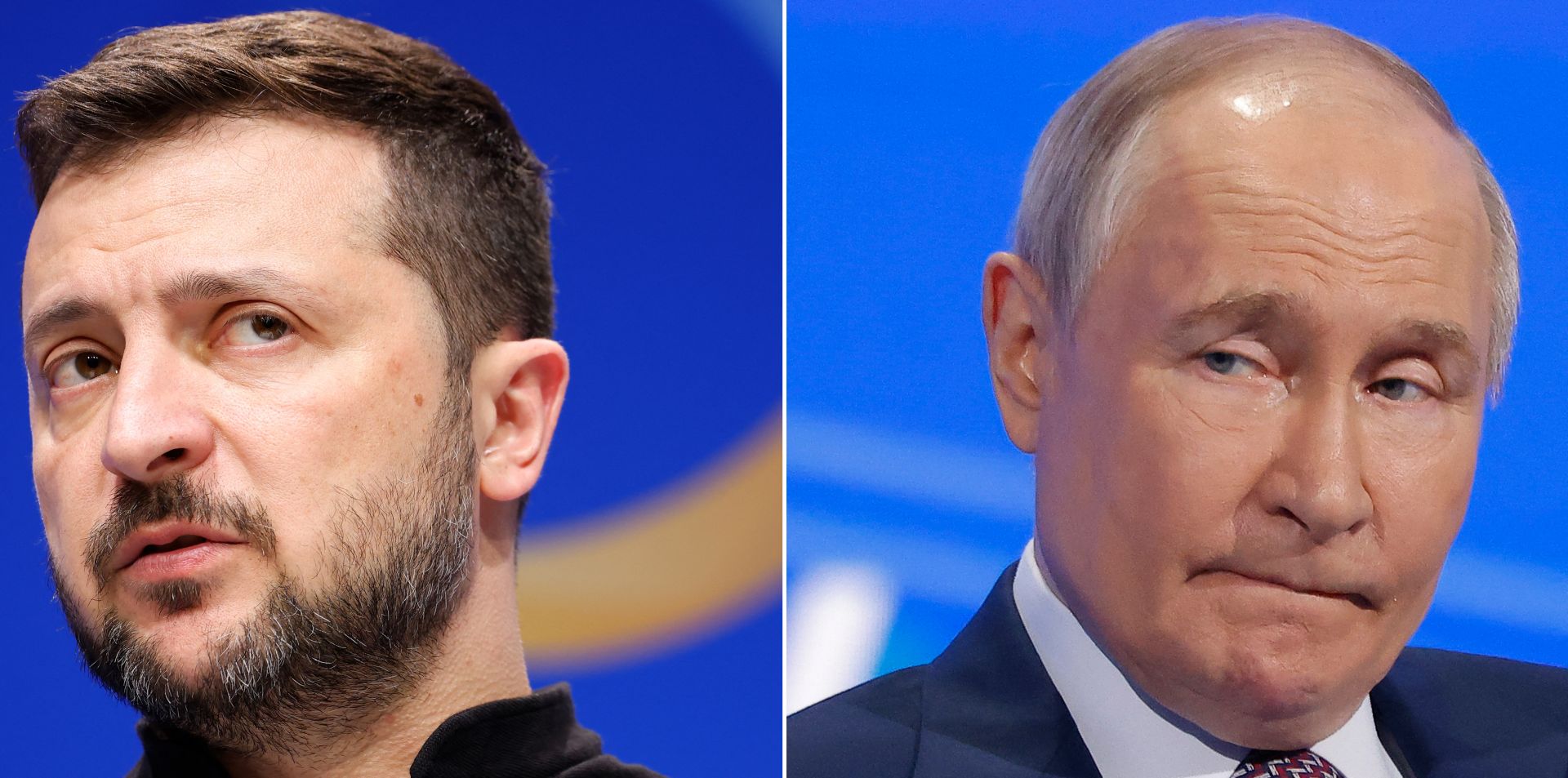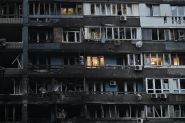- Home
- Middle East
- Ukraine Peace Talks: What are Kyiv and Moscow's Positions?

Volodymyr Zelensky and Vladimir Putin ©Odd Andersen and Maxim Shemetov / Various Sources / AFP
Delegations from Kyiv and Moscow are holding on Monday a second round of direct talks on the possibility of ending the war in Ukraine, triggered by Russia's February 2022 invasion.
The two sides are set to present their visions of what a peace settlement could look like at the negotiations, which will be presided over by Turkish Foreign Minister Hakan Fidan.
Despite the flurry of diplomacy urged on by US President Donald Trump, their demands have thus far been irreconcilable.
Territory for Russia
Russia has repeatedly demanded it retain territory in southern and eastern Ukraine that it occupies and for Kyiv to cede even more land.
Moscow in 2022 annexed four Ukrainian regions -- Donetsk, Lugansk, Zaporizhzhia and Kherson -- despite not having full control over them.
Russia also annexed the Crimean peninsula from Ukraine in 2014.
President Vladimir Putin last year demanded Ukraine pull its forces out of parts of those regions that its army still controls as a prerequisite to any peace settlement.
At a first round of talks last month, Ukraine accused Moscow of repeating those demands and threatening to accelerate a ground offensive into the Sumy and Kharkiv regions, over which Russia has made no formal claim.
Russian Foreign Minister Sergei Lavrov has said recognition of Moscow's ownership of these territories was "imperative" for any negotiations.
Ukraine has said it will never recognise its occupied territories, including Crimea, as Russian.
But Ukrainian President Volodymyr Zelensky has said Kyiv may be forced to try to secure their return through diplomatic means -- effectively conceding that Russia could maintain control over some land in any peace deal.
Russia demands on NATO
Russia has also demanded that Ukraine be barred from joining the NATO military alliance and has repeatedly said it wants Zelensky removed from office.
Russia had intended to topple Zelensky when it launched its invasion in 2022, with Putin calling in a televised address for Ukraine's generals to oust him in a coup d'etat and then open talks with Moscow.
Putin in March floated the idea of Ukraine being put under a UN-backed "temporary administration", refreshing his call to essentially remove Zelensky.
Russian officials have throughout the war called for the "de-militarisation" and "de-Nazification" of Ukraine -- casting Kyiv as a neo-Nazi "regime".
Kyiv and the West have rejected those narratives.
Russia has also sought at times to limit the size of Ukraine's army, wants Ukraine to be declared a neutral state and for Western countries to stop supplying it with weapons.
Security guarantees for Ukraine
Zelensky has for months been calling for "security guarantees" for Ukraine to stop Russia invading again.
His top demand would be for Ukraine to be admitted to NATO, or for Ukraine to fall under the military alliance's Article Five collective defence term.
Trump has however, dismissed the possibility of Ukraine joining the bloc and Russia says NATO membership would be "unacceptable".
Instead, Kyiv is pushing for some other form of Western military commitment that would deter Moscow.
Britain and France are leading discussions about a possible European troop deployment to enforce any ceasefire, among a group of countries dubbed the "coalition of the willing".
But Kyiv still wants Washington to back up any "security guarantee".
Moscow has said it would not accept troops from NATO countries being deployed to Ukraine in any capacity.
Ceasefire
Zelensky wants an immediate and unconditional ceasefire to cover combat on air, sea and land.
Kyiv says meaningful discussions over a long-term peace deal can only happen once fighting has paused.
"First –- a full and unconditional ceasefire. Second –- the release of prisoners. Third -– the return of abducted children," Zelensky said Sunday on social media, outlining Kyiv's priorities for Monday's talks.
Putin has rejected Ukrainian and Western calls for an immediate ceasefire.
The Kremlin says it does not rule out agreeing some kind of ceasefire at Istanbul, but that talks should address the "root causes" and look to strike a "long-term settlement."
For Putin, the "root causes" of the conflict are grievances with Kyiv but also the West and NATO over what Russia sees is their expansion into former Soviet or communist countries.
Moscow has demanded strict limits on Ukrainian military activity should any truce be agreed -- such as a ban on mobilisation and halt to the flow of Western weapons.
With AFP
Read more



Comments